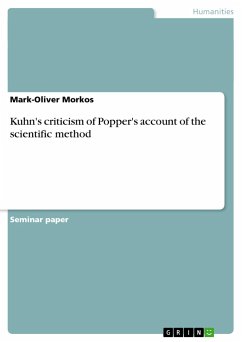Short description/annotation
Herbert Keuth's book is a systematic exposition of Popper's philosophy.
Main description
Karl Popper is one of the greatest and most influential philosophers of the twentieth century. Perhaps his greatest book, The Logic of Scientific Discovery, sets out his epistemology of critical rationalism, while his most famous book, The Open Society and Its Enemies, applies the principles of critical rationalism to social philosophy. Herbert Keuth's book (first published in German in 2000) is a systematic exposition of Popper's philosophy covering in part 1 the philosophy of science, in part 2 the social philosophy, and in part 3 the later metaphysics, in particular the theses to solve indeterminism/determinism and mind/body problems, and the famous idea of a third world of objective thought. This book is more comprehensive than any current introduction to Popper. Its perspicuous structure and lucid exposition should ensure that it could be used in courses in both the philosophy of science and the philosophy of social science.
Table of contents:
Part I. The Philosophy of Science: 1. The two fundamental problems in the theory of knowledge; 2. The role of theories; 3. On the problem of a theory of scientific method; 4. The problem of the empirical basis; 5. Corroboration; 6. Realism and the concept of truth; 7. Verisimilitude; 8. Probability; Part II. The Social Philosophy: 9. Knowledge, decision, responsibility; 10. The poverty of historicism; 11. The open society; 12. The 'positivist dispute'; Part III. Metaphysics: 13. Natural necessity; 14. Determinism versus indeterminism; 15. The body-mind problem and the third world.
Herbert Keuth's book is a systematic exposition of Popper's philosophy.
Main description
Karl Popper is one of the greatest and most influential philosophers of the twentieth century. Perhaps his greatest book, The Logic of Scientific Discovery, sets out his epistemology of critical rationalism, while his most famous book, The Open Society and Its Enemies, applies the principles of critical rationalism to social philosophy. Herbert Keuth's book (first published in German in 2000) is a systematic exposition of Popper's philosophy covering in part 1 the philosophy of science, in part 2 the social philosophy, and in part 3 the later metaphysics, in particular the theses to solve indeterminism/determinism and mind/body problems, and the famous idea of a third world of objective thought. This book is more comprehensive than any current introduction to Popper. Its perspicuous structure and lucid exposition should ensure that it could be used in courses in both the philosophy of science and the philosophy of social science.
Table of contents:
Part I. The Philosophy of Science: 1. The two fundamental problems in the theory of knowledge; 2. The role of theories; 3. On the problem of a theory of scientific method; 4. The problem of the empirical basis; 5. Corroboration; 6. Realism and the concept of truth; 7. Verisimilitude; 8. Probability; Part II. The Social Philosophy: 9. Knowledge, decision, responsibility; 10. The poverty of historicism; 11. The open society; 12. The 'positivist dispute'; Part III. Metaphysics: 13. Natural necessity; 14. Determinism versus indeterminism; 15. The body-mind problem and the third world.








